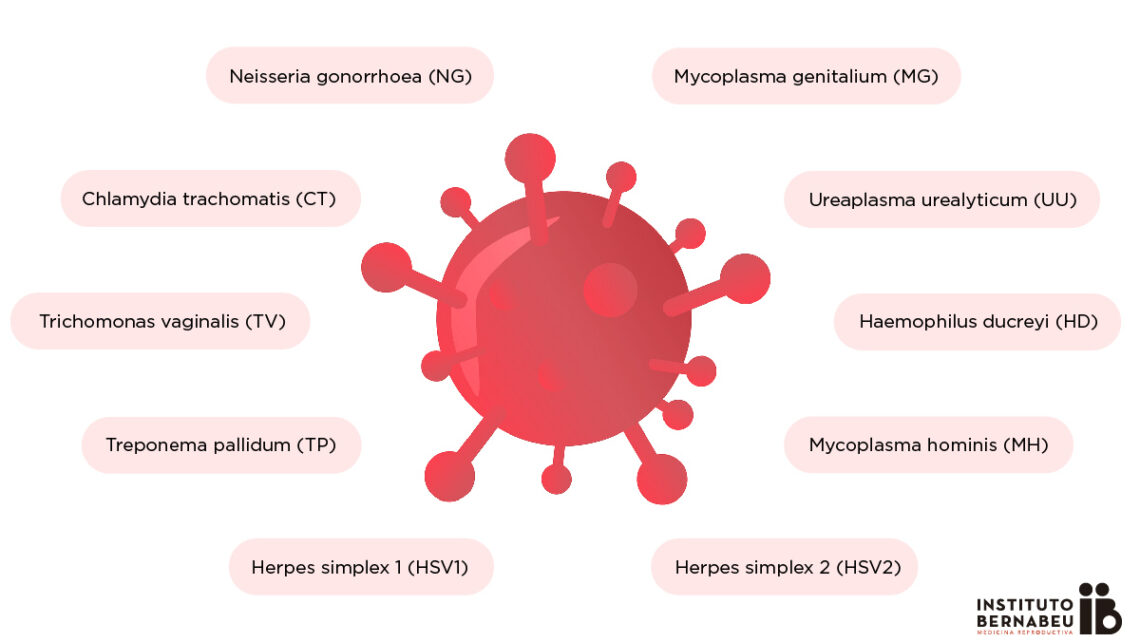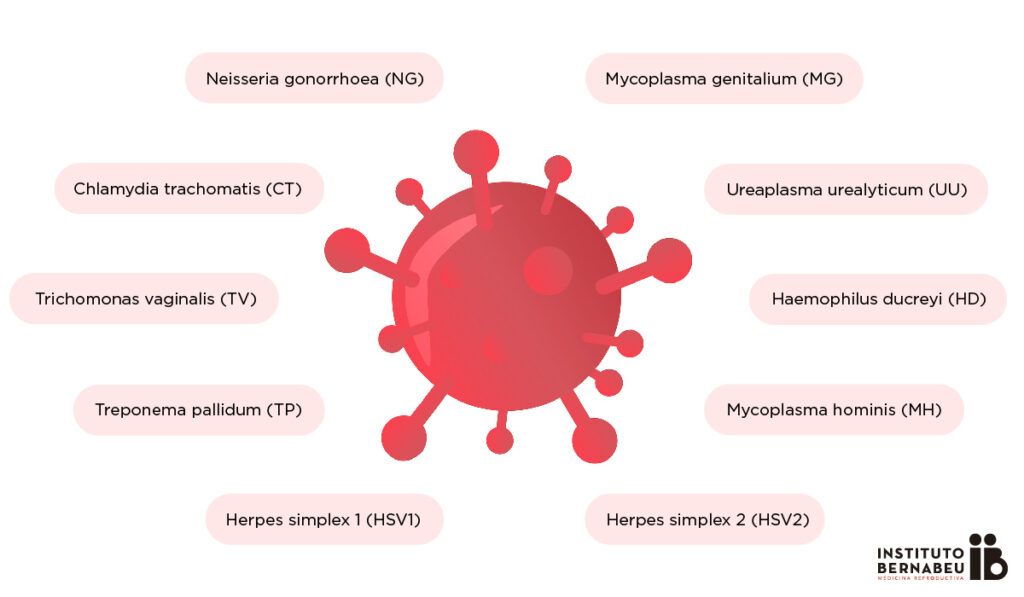
The significance of sexually transmitted diseases (STDs) in fertility
Sexually transmitted disease (STDs) are infections that are transmitted, on the whole, during unprotected sexual intercourse. However, they can also be transferred from mother to child during pregnancy.

There are over 30 different types of STDs, most of which are caused by a virus (herpes), bacteria (gonorrhoea, chlamydia and syphilis) and fungi (candidiasis). Infections of this kind affect both men and women and whilst many STDs do not have any symptoms, they can cause serious issues in the long term if they are not treated. In some cases, they can have a very negative impact on such important aspects of health as fertility and pregnancy.
Índice
STD’s symptoms and consequences in fertility
The incidence of this type of sexually transmitted infections has continued to grow in Europe in recent years, in the sexually active population. Likewise, it is important to highlight that some of these types of infections do not show symptoms in the infected person; that is, they are asymptomatic. This situation generates the need to carry out testing that allow us to control this type of diseases, since, if not treated in time, some of them can cause infertility problems in both women and men.
- Specifically, some STIs can cause inflammation and obstruction of the fallopian tubes in women, as well as inflammation of the ovaries and uterus.
- In the case of men, they can cause inflammation of the testicles, the prostate and the epididymis, which induces a decrease in the number of sperm produced and impaired sperm quality.
Becoming an infertility cause for men and women. For this reason, on most cases, it will be necessary to undergo fertility treatment (in vitro fertilization (FIV), egg donation, etc) to become parents.
How the Sexually Transmitted Diseases (STD’s) are analyzed
In order to avoid STDs leading to serious complications, there are currently many means of detecting and treating them. The detection techniques used up until now only allowed us to detect a single STD per analysis. Furthermore, in order to do so, it was also necessary to wait 3 or 4 months following possible contagion.
Instituto Bernabeu is now the first clinic in Spain to have an innovative technique that is able to detect 10 different possible infections in a single analysis. There are several advantages to this technique:
- The analysis can be performed just a few days following sexual intercourse
- The analysis can be performed using a urine sample sent to us from home
- The result can be obtained in just a few days
- As such, we can help contribute towards preventing sexually transmitted diseases of this kind and, by performing checks, avoid more serious consequences that could have an impact on the person’s general health or fertility in the future
You may also be interested in:
- Blocked fallopian tube. The involvement of “tubal factor” in fertility
- Importance of the Sexually Transmitted Diseases (STD’s) detection in sperm and egg donors
Dr Eva Garcia, Biologist at IBBIOTECH, part of the Instituto Bernabeu group.
